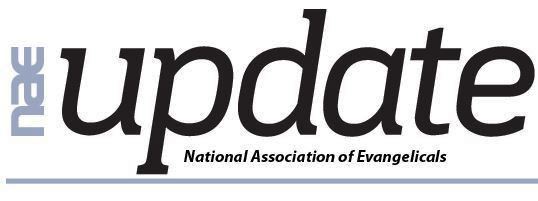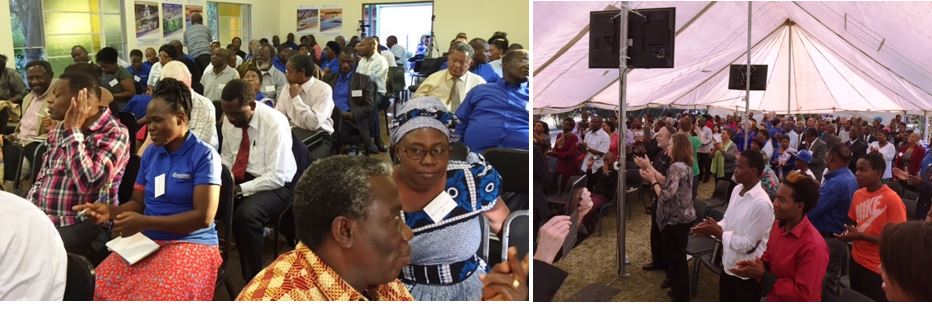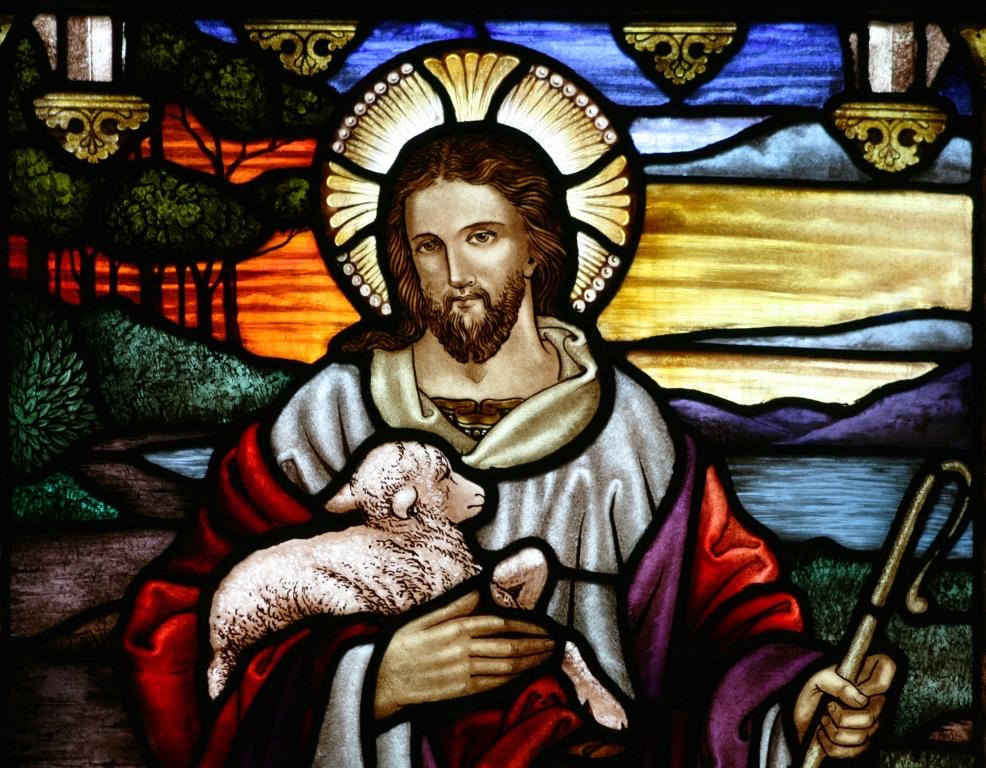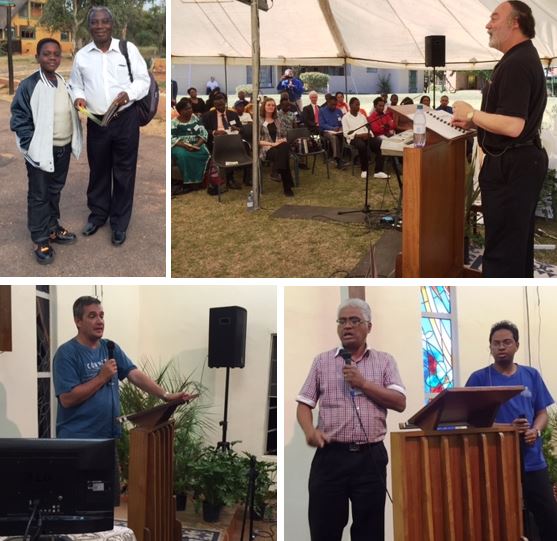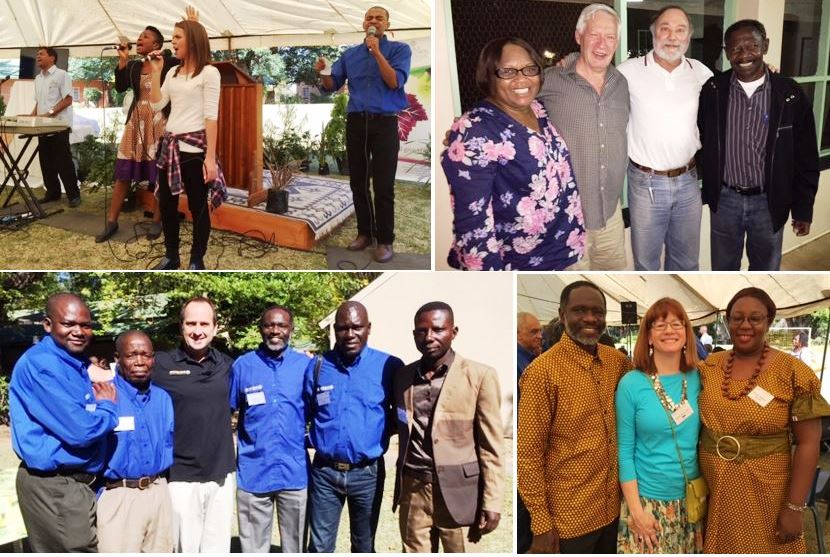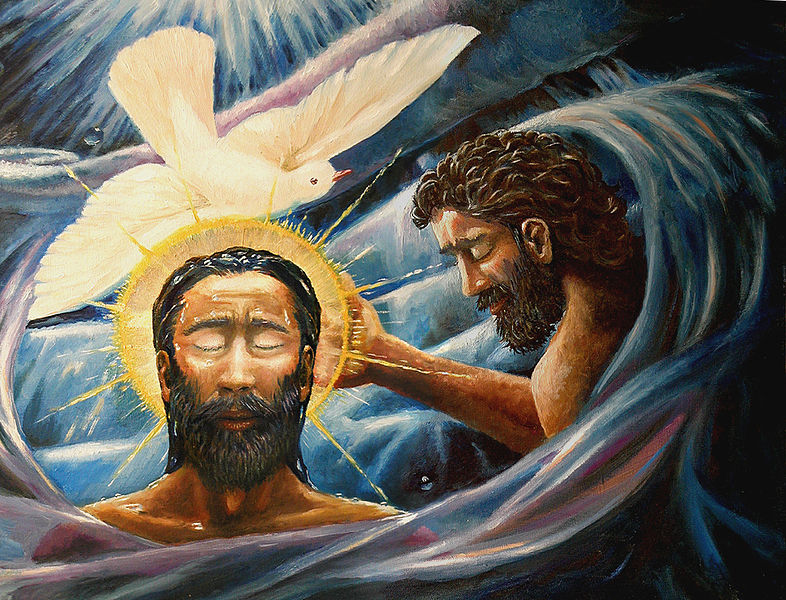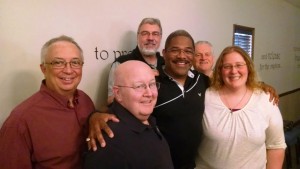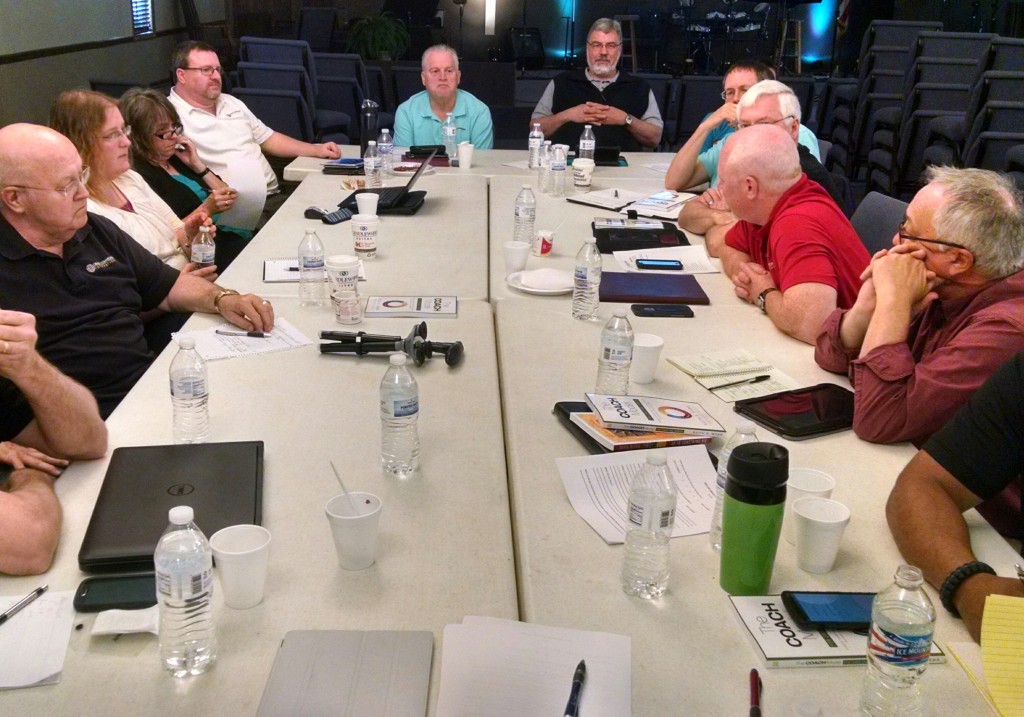Dear Brothers and Sisters,
 There are many themes that are appropriate to preach on the Day of Pentecost: God reverses the tower of Babel; God takes residence in his people; God gives spiritual unity; God gives new identity; God writes his law in our hearts; God reconciles people to himself and more. A theme that has been going through my mind in preparation for Pentecost this year is based on what Jesus said concerning what the Holy Spirit would do following his resurrection and ascension: “He will glorify me, because he will take what is mine and declare it to you” (John 16:14, NRSV). There is a lot in this sentence. We know that the Spirit works to convict us of the truth that Jesus is our Lord and Savior. We also know that he reveals that Jesus is our elder brother who unconditionally loves us and has reconciled us to the Father. But another way the Spirit fulfills what Jesus said, is by inspiring what we do in proclaiming the gospel message through our relationships and interactions with others.
There are many themes that are appropriate to preach on the Day of Pentecost: God reverses the tower of Babel; God takes residence in his people; God gives spiritual unity; God gives new identity; God writes his law in our hearts; God reconciles people to himself and more. A theme that has been going through my mind in preparation for Pentecost this year is based on what Jesus said concerning what the Holy Spirit would do following his resurrection and ascension: “He will glorify me, because he will take what is mine and declare it to you” (John 16:14, NRSV). There is a lot in this sentence. We know that the Spirit works to convict us of the truth that Jesus is our Lord and Savior. We also know that he reveals that Jesus is our elder brother who unconditionally loves us and has reconciled us to the Father. But another way the Spirit fulfills what Jesus said, is by inspiring what we do in proclaiming the gospel message through our relationships and interactions with others.
We see a wonderful example of this when we read about the birth of the New Testament church on the day of Pentecost ten days after Jesus’ ascension. You’ll recall Jesus’ instruction to his disciples to wait for what would happen that day: “Do not leave Jerusalem, but wait for the gift my Father promised, which you have heard me speak about’” (Acts 1:4). Because they followed Jesus’ instructions, the disciples witnessed the coming of the Holy Spirit in great power. Acts 2:1-13 describes the gift they received that day, just as Jesus promised. First came a sound like a violent wind, then tongues of fire, and then the Spirit demonstrated miraculous power by giving the disciples a unique way to share the story of Jesus and its purpose for humanity (the gospel). Most, if not all, of the disciples spoke in this miraculous way, and the people hearing were amazed and perplexed to be hearing the story of Jesus in their own language and from people who they considered to be uneducated and uncultured (Galileans). A few in the audience mocked the unfolding event, accusing the disciples of being drunk (mockers still exist today, don’t they?). But the disciples where not drunk in the flesh (and it does violence to the text to suggest that they were “drunk in the Spirit”).
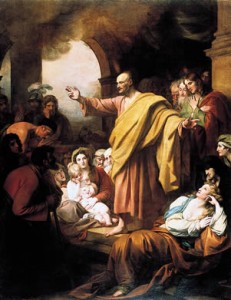
Peter’s sermon/testimony to the gathered crowd is recorded in Acts 2:14-41. Peter explained the validity of this miraculous event in which the language barrier was supernaturally transcended as a sign that all people would now be gathered together in Christ. In order to show God’s love for all and his desire that all be included in his international people, the Holy Spirit initiated this declaration of the gospel in the native languages of the audience. The Holy Spirit continues in our day to enable the proclamation of the gospel message in ways that are relevant and accessible to all people. He enables ordinary believers to bear witness to that message in ways that pierce the hearts of those God is calling. In doing so, the Holy Spirit points people to Jesus, the Lord of the universe who sheds light on everything and everyone in the cosmos.
The creed issued at the Council of Nicaea in A.D. 325 has only this brief statement on the Holy Spirit: “We believe in the Holy Spirit.” Though the creed says much more about God the Father and God the Son, we should not conclude that the creed’s authors were giving the Holy Spirit the short end of the stick (thinking that the Spirit should be given short shrift, some, unfortunately, have wandered into tritheism). There is a reason for the relative anonymity of the Spirit in the Nicene creed. As theologian Kim Fabricius rightly notes in one of his books, the Holy Spirit is “the self-effacing and anonymous member of the Trinity.” As the Holy Spirit of the Father and the Son, he does not seek his own glory, but works to glorify the Son, who, in turn, glorifies the Father. One of the primary ways the Spirit does this work, is by enabling, inspiring and guiding us to participate with Jesus in his ongoing ministry to fulfill the Father’s mission to the world. Through the Holy Spirit, Jesus does the heavy lifting in this ministry; yet he invites us to participate in substantial ways, including befriending, encouraging, helping and interacting with people—just like he did (and continues to do). When it comes to ministry, we might say that Jesus is the heart surgeon and we are his attending nurses. As we participate with him in his ongoing ministry, we experience the joy of what he is doing and we fulfill his commission to his church.
Nothing in the Hebrew scriptures or in the religious tradition of first-century Judaism would have prepared the disciples for the absolutely unique and dramatic arrival of the Holy Spirit on that day of Pentecost. Nothing in the symbolism of leaven (used by Jews during the Days of Unleavened Bread), would have led the disciples to expect the Holy Spirit to cause them to speak in other tongues so that they would be able to communicate the gospel message across cultural and linguistic barriers. Indeed, on that day of Pentecost, God was doing something new. Understanding this, Peter declared to the gathered audience that the “last days” had arrived (Acts 2:16-17)—a truth even more significant and amazing than the miracle of speaking in tongues.
In Jewish thinking the idea of the “last days” was associated with numerous Old Testament prophecies about the coming of the Messiah and the kingdom of God. Peter was saying, in effect, that a new age had dawned. We rightly call it the age of grace and truth, the church age, or the age of the new covenant in the Spirit. As revealed on that Pentecost, since the resurrection and ascension of Jesus, God is working in the world in a new way.
Pentecost is a powerful reminder of this truth for us today. We do not observe Pentecost as an old covenant festival, nor as a required festival. Celebrating what God did on that day of Pentecost is part of church tradition—not only the tradition of our denomination, but of many others. Pentecost celebrates the saving acts of God in the last days involving a deeper working of the Holy Spirit, who renews, transforms and empowers us to be his witnesses—those who spread the good news in word and deed, in small and even sometimes extraordinary ways, and always to the glory of our God and Savior—Father, Son and Holy Spirit.
I’m reminded here of a grand quote by John Chrysostom. Chrysostom is the anglicized form of a Greek word that means “golden-mouthed.” This nickname came from his fantastic preaching. He said:
So the whole of our lifetime is a festival. For when Paul said, “Let us keep the feast” [1 Corinthians 5:7-8], he wasn’t referring to the Passover or Pentecost. He was pointing out that all time is a festival for Christians…. For what good thing has not already come to pass? The Son of God was made human for you. He freed you from death and called you to a kingdom. Now that you have gained such good things—and are still gaining them—how can you do anything less than “keep the feast” all your life? So let no one be downcast about poverty or illness or the cunning of enemies. It is a festival, all of it—our whole lifetime! (Homilies on 1 Corinthians 15.6).
Loving to keep in step with the Holy Spirit,
Joseph Tkach


